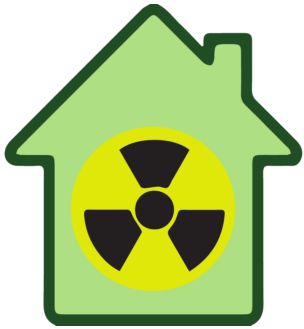What’s making us sick? 
Researchers educate lawmakers on looming dangers
HEALTH | Patrick Yeagle
In 1984, an engineer named Stanley Watras set off a radiation detector at the nuclear power plant he was helping to build in Pottstown, Pa. The power plant hadn’t started producing power yet, so plant officials were perplexed at how Watras could have become so radioactive. What they found revealed a potential danger in homes everywhere.
Patrick Daniels, director of the radon program for the Illinois Emergency Management Agency, told that story last week at a meeting of scientists, legislators and nonprofits. The Midwestern Environmental Health Policy Summit, hosted at the Abraham Lincoln Hotel in Springfield by the National Conference of State Legislatures on Feb. 20 and 21, sought to inform lawmakers about looming dangers that will likely become legislative issues in the coming years.
Daniels’ job is convincing homeowners to test their homes for radon and convincing the Illinois General Assembly to pass laws protecting the public from this cancercausing radioactive gas that results from the decay of uranium in the soil. It turns out Stanley Watras was being exposed to 2,700 picocuries of radiation per liter – the equivalent of smoking 125 packs of cigarettes per day – because of radon in his home. While there is no “safe” level of radon, researchers typically suggest taking remedial action when a home contains four picocuries of radiation per liter.
The Watras case was significant because although scientists knew about radon previously, it wasn’t considered a potential danger in the home. Illinois law requires anyone selling a home to disclose whether a radon test in the home has ever shown four picocuries of radiation per liter, but the law doesn’t actually require sellers to test a house before selling. As a result, Daniels says, only about 8 percent of Illinois homes have been tested for radon. The only way to know a home is safe is to test, he says.
“People say ‘Pat, if you get everybody to test, you’re gonna be out of work,’ ” Daniels said. “It’s going to be a long time before I’m out of work.”
While only a handful of Illinois legislators attended the summit and were almost outnumbered by legislators from states like Minnesota, Iowa and Indiana, those who did attend heard about topics like biofuels, climate change and an issue that is already raising controversy in Illinois – horizontal hydraulic fracturing.
Commonly known as “fracking,” horizontal hydraulic fracturing involves injecting millions of gallons of water, silica sand and chemicals deep underground to pressurize and crack shale rock formations, which releases trapped oil and natural gas deposits. Illinois lawmakers passed a fracking law in June 2013, but the Illinois Department of Natural Resources is still working out administrative rules to oversee the relatively new procedure. Other states that already allow fracking have experienced increased seismic activity, chemical spills and well explosions, along with reports of ruined drinking water supplies.
Dr. Erin Haynes, a professor who studies environmental health at the University of Cincinnati, spoke to lawmakers about her research on the effects of low-level toxic exposure. She has been studying frackingrelated air quality issues, and she says it’s much too early to know whether fracking is safe.
“The industry says it’s safe and fantastic, but the public doesn’t believe it,” Haynes said. “So now we need science, for university researchers to do research.”
Dr. Thomas Peters, a professor of environmental health at the University of Iowa, detailed his study of air quality related to the mining of silica sand, which is needed in fracking to hold rock fissures open. Silica mining and processing, like the kind that occurs near Illinois’ Starved Rock State Park, produces a fine dust that causes lung scarring and cancer. Peters and Haynes don’t hold out any hope that lawmakers will postpone fracking until the science is clear.
“We have plenty of precedent for moving forward without good science,” Peters said. “I don’t think we’re going to stop. I don’t think it makes sense without the science to call it safe or unsafe. I don’t think it’s clear cut enough to say it’s a tremendous, horrible exposure.”
“It’s unfair that this industry does not have to do that life cycle,” Haynes added, referring to the process of establishing a scientific consensus on safety. “Fracking just runs, and we’re playing catch up.”
Contact Patrick Yeagle at [email protected].